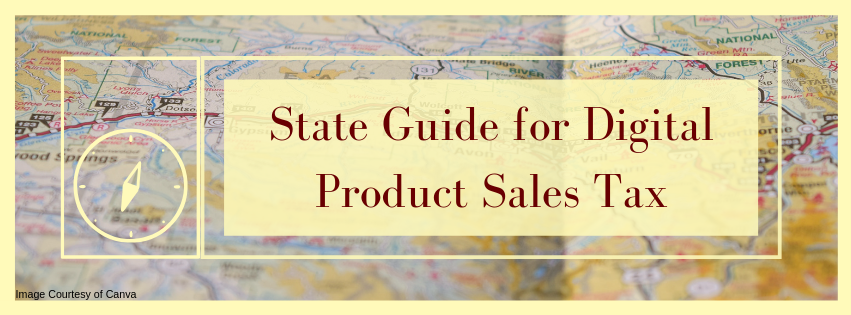From Wayfair v. South Dakota to the Tax Cuts and Jobs Act, it’s no secret that sales tax and the way we view it is changing. All across the nation, states are issuing letter rulings, asking questions, and amending laws to reflect an evolving marketplace where nearly everything can now be found or sold online.
But when it comes to collecting sales tax on a digital product like an ebook, song, or your favorite Netflix show, how does one fit them into a one-size-fits-all law that was created before digital products even existed?
For most states, the problem lies in it’s non-physical attributes. Nearly all sales tax laws under the Streamlined Sales and Use Tax Agreement (SSUTA) call for collection on items of “tangible personal property”, but if an iTunes recording can’t be held like CD album or an ebook read like a paperback novel, that definition falls short, causing the resulting aftermath to be confusing.
For some states, digital products are disregarded as taxable altogether, while for yet more, terminology and perspectives are stretched to include new product developments into old definitions. And while the specifics may vary, for the most part we can distinguish the states that tax digital products from those that don’t.
The general rule is as follows…
States That Generally Tax Digital Products
- Alabama
- Arizona
- Arkansas
- Colorado
- Connecticut (subject to a 1% reduced rate)
- Florida (streaming of music or videos subject to the communications services tax, or CST)
- Hawaii
- Idaho (if buying permanent rights)
- Indiana
- Iowa
- Kentucky (digital audio-visual works not counted under the definition of “digital property”)
- Louisiana
- Maine
- Minnesota
- Mississippi
- Nebraska
- New Jersey
- New Mexico (see FYI-105: Gross Receipts and Compensating Taxes: An Overview)
- North Carolina
- Ohio
- Pennsylvania
- South Dakota
- Tennessee
- Texas (if the tangible form is taxable)
- Utah
- Vermont
- Washington
- Wisconsin
- Wyoming
- Washington, D.C.
States That Don’t Generally Tax Digital Products
- California (streaming services may qualify for local utility users tax)
- Florida (excluding ebooks)
- Georgia
- Idaho (for digital subscriptions, renting, or leasing)
- Illinois (except the Chicago amusement tax applying to Chicago streaming services)
- Kansas (more details found through the state taxability matrix)
- Maryland (digital goods not specifically referenced as taxable)
- Massachusetts
- Michigan (more details found through the state taxability matrix)
- Missouri
- Nevada (more details found through the state taxability matrix)
- New York
- North Dakota (see 57-39.2-04. Exemptions)
- Oklahoma (see 710:65-19-156. Internet-related services and transactions)
- Rhode Island
- South Carolina
- Virginia
- West Virginia (more details found through the state taxability matrix)
States That Don’t Have General Sales Tax
- Alaska
- Delaware
- Montana
- New Hampshire
- Oregon
Keep in mind that these are general sales tax protocols, and you should always double check with your state before making a taxation decision, as many exceptions exist and laws are always subject to change.
Last but not least, as long as the marketplace continues to develop, so too will our sales tax laws evolve to match – so make sure you stay up to date with the latest requirements!
